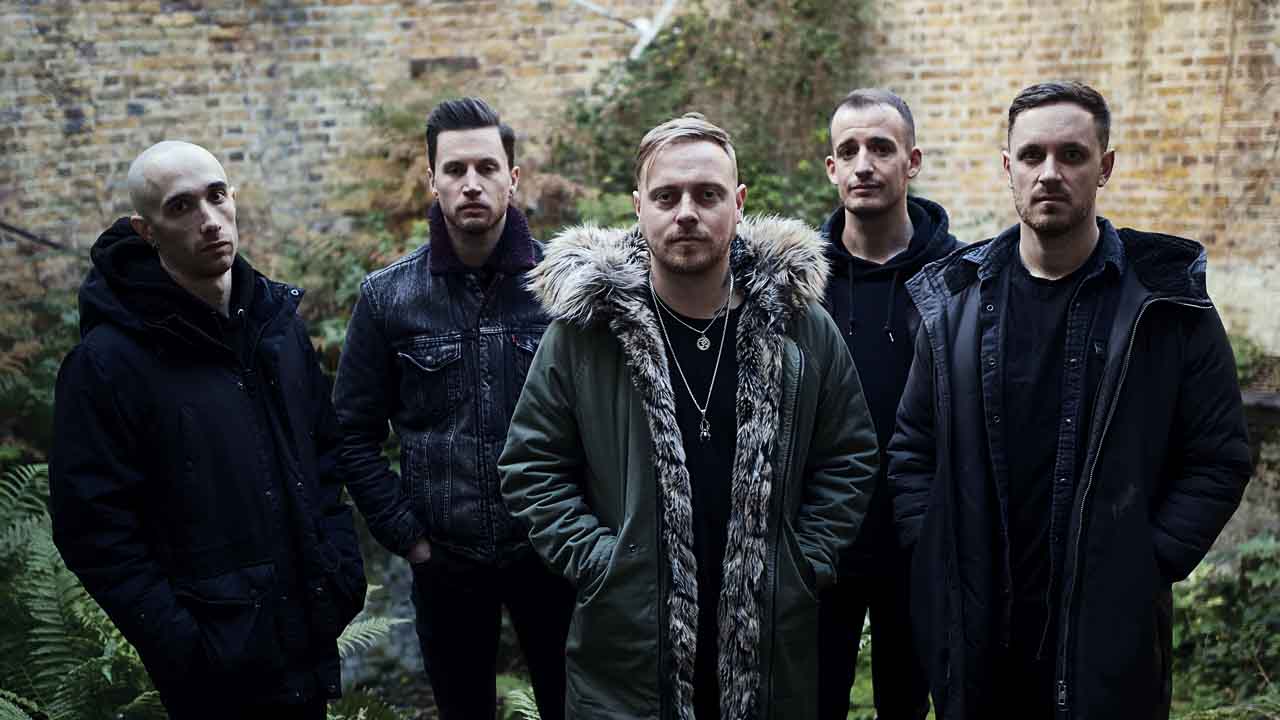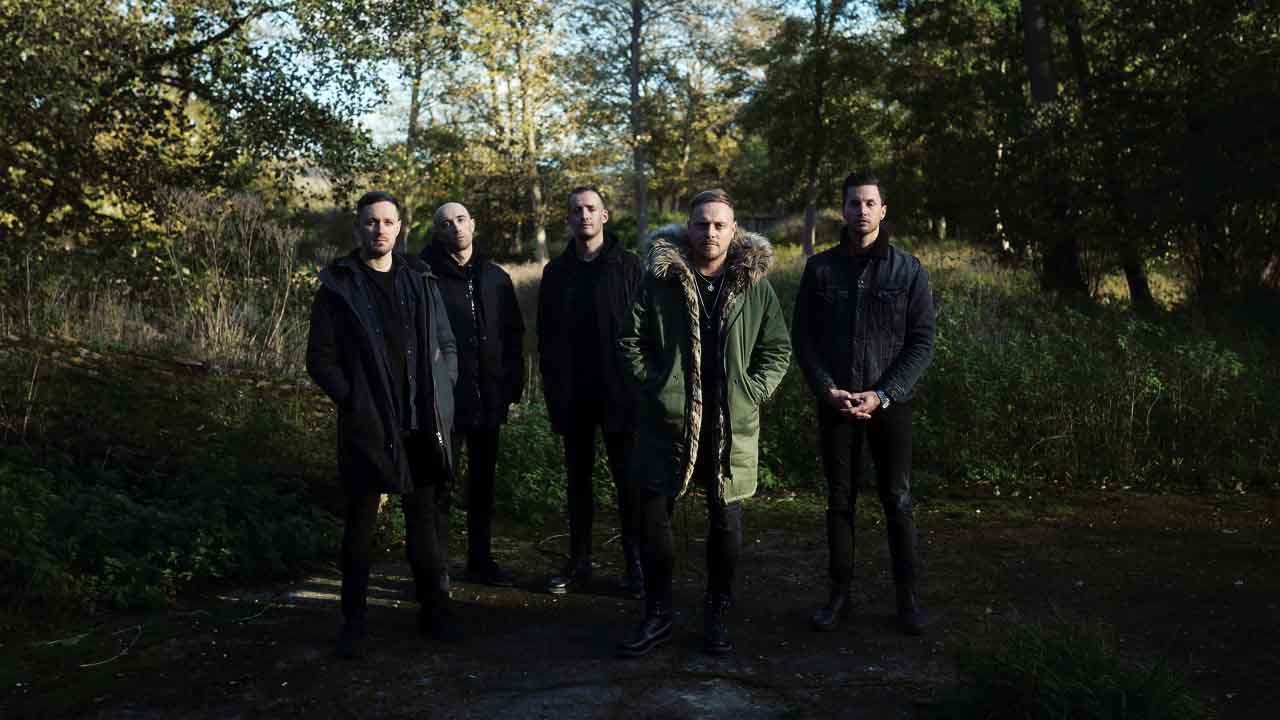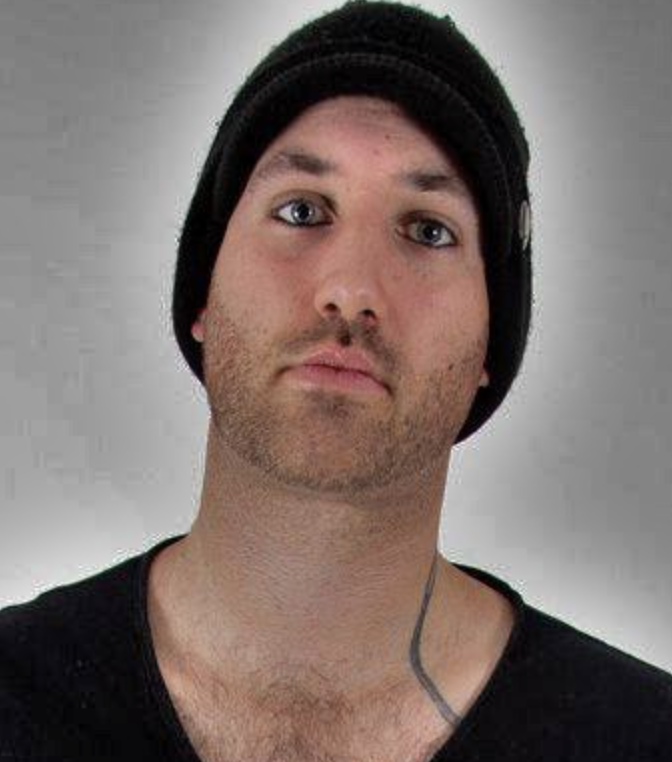Architects’ Sam Carter: “I don’t think this generation is going to save the planet”
Architects frontman Sam Carter opens up about the turmoil and strife that influenced their first No.1 album, For Those That Wish To Exist

Select the newsletters you’d like to receive. Then, add your email to sign up.
You are now subscribed
Your newsletter sign-up was successful
Want to add more newsletters?

Every Friday
Louder
Louder’s weekly newsletter is jam-packed with the team’s personal highlights from the last seven days, including features, breaking news, reviews and tons of juicy exclusives from the world of alternative music.

Every Friday
Classic Rock
The Classic Rock newsletter is an essential read for the discerning rock fan. Every week we bring you the news, reviews and the very best features and interviews from our extensive archive. Written by rock fans for rock fans.

Every Friday
Metal Hammer
For the last four decades Metal Hammer has been the world’s greatest metal magazine. Created by metalheads for metalheads, ‘Hammer takes you behind the scenes, closer to the action, and nearer to the bands that you love the most.

Every Friday
Prog
The Prog newsletter brings you the very best of Prog Magazine and our website, every Friday. We'll deliver you the very latest news from the Prog universe, informative features and archive material from Prog’s impressive vault.
Like many artists who have spent the last year confined to their homes, Architects vocalist Sam Carter has an abundance of excess energy. “Yeah, I’m just about to go out for a run,” he laughs, fidgeting on his seat over a Zoom after we enquire why he is decked out in the full training kit of his beloved Manchester United. “I have to do something. It’s been a nightmare not being able to do the thing we’ve done for the last, what, 15 years now? The [November] livestream at the Royal Albert Hall brought home how much we need that connection with people; it was great to play that venue, but I need that person screaming our songs back into my face.”
It’s been a nightmare not being able to do the thing we’ve done for the last 15 years.
Sam Carter
Sam’s desire to get Architects moving again is almost palpable through the screen – understandable, as 2021 will mark the start of a brand-new chapter for the band. Having experienced the stunning highs and gut-wrenching lows of the last five years – a period that saw them become a bona fide arena headline act and release critically adored albums in 2016’s All Our Gods Have Abandoned Us and 2018’s Holy Hell, while also suffering the tragic loss of guitarist and band leader, Tom Searle – Architects have regrouped. Their new era starts with the release of For Those That Wish To Exist, their ninth album, and first not to feature a single note or writing credit from Tom. Make no mistake: they may be an established band, but this is far from business as usual.
“I miss Tom, I love him, I think about him every day, he will always be a part of this band, he will always be there onstage with us at every show,” Sam says. “You don’t forget your best friend. He would want us to continue on though, and I know he would look at this album and be really proud of us; he’d probably say, ‘How the fuck have you done this?!’ because we didn’t know how to make a record without him! If people want to say we’re a different band, or a new band or whatever… as much as it hurts a little bit, it’s kind of true. We really couldn’t have made this album two years ago.”
The genesis of For Those That Wish To Exist began almost immediately after the release of Holy Hell, but really accelerated when the band played their last ‘proper’ show in front of an audience in Australia at the start of last year. Their plans were disrupted, not by COVID 19, but by the bush fires that decimated the country.

“We planned on staying in Australia and working on the record but then the fires happened and we had to leave,” Sam sighs. “Dan [Searle, drummer] was out there with his kid and there were days where you weren’t allowed into the town centre with children. It was really scary, and it was like, ‘We’ve been talking about this stuff for years!’ So, to be in it when something this terrifying and tragic actually was happening to the environment… I think that helplessness informed the record quite a lot.”
Unable to stay in Australia, the band decided to instead regroup in Bali to write and demo the record. Self-producing it, they would get up with the sunrise, eat breakfast and then work for five hours, stuffing towels in the walls of their huts to soundproof their surroundings as they tracked drums and worked out how to create as a band again. It’s a process which Sam says bonded the band even further, and it was where For Those… really took shape.
“We never look back,” he smiles. “We did The [London] Roundhouse, then Brixton Academy, Wembley… it’s always been that way. But as you sit there on this beach in Bali, with hardly anyone else there, looking at the sea and the sun and herons flying over you, you can’t help but take stock. I think that helped us make a choice of what we were going to do with this record; you realise that whatever we do, no matter how far we stray from what people think we are, if we do it, then it’s Architects.”
Sign up below to get the latest from Metal Hammer, plus exclusive special offers, direct to your inbox!
The results of this soul-searching can be heard clearly on For Those That Wish To Exist – it is, in Sam’s words, a very different, more rounded version of Architects. The singer is quick to admit it’s not as sonically heavy as their previous works; in fact, in many places, it is more perfectly, sweetly melodious than they have ever sounded. Yet despite its sonic brightness, it is still as thematically dark as you’d expect: still scathingly questioning of the worst aspects of the human condition, often pondering on the fragility of our existence. There might not be quite so many ‘blehs’ and breakdowns, but an album of such existential interrogation is far from disposable pop.
“We felt we had to not be scared to do something new,” explains Sam. “I go on about The Beatles all the time; they are a band who can write very deep, very serious, dark songs and have them stick in your head. That’s not throwaway, that’s the true mark of genius. Dan has something that is beyond most people when it comes to writing lyrics, which is why I don’t bother! He brings me things and I think, ‘My god, where did that come from?’ but it just nails our concerns about the world. We sit down and talk about what each song is about. All of us agree on the things this band stands for: I don’t think we, this generation, are going to save this planet. It might sound miserable, but there really is so little to be happy about, so, of course, we question that.”
The band are joined on the record by what Sam calls a collection of ‘guest rockers’: Parkway Drive’s Winston McCall, Simon Neil of Biffy Clyro and Royal Blood frontman, Mike Kerr.
“It’s cool for us, because in 100 years’ time people will listen to this and go, ‘Oh, they must have been mates!’” Sam chuckles. “I love that idea. Winston is the best, we’ve known [Parkway] for years and they are perfect, both as people and a band. I grew up in the same village as Mike, it’s mad that the two of us have come from this little place, I’m so proud of what he’s achieved. Biffy have always been such an inspiration to us as a band; when [2007 album] Puzzle came out we all looked at it and went, ‘They’re doing this weird shit and people love them, so why can’t we?’ We’ve all always wanted to hear Simon Neil over Architects riffs.”
That’s what we want this album to represent; to live your life fearlessly.
Sam Carter
Good as the guests are, they can’t overshadow the strides Architects have made. The record ends with the fragile, beautiful Dying Is Absolutely Safe, which, as well as being as soaring and fragile as they have ever sounded, almost acts as a disclaimer for the nihilism that has gone before it. It’s a song that Sam thinks is one of the most important in the bands career.
"What Dan has done with that song, where he went and what he drew from, is amazing," he says shaking his head. "It’s a song that we’ve always wanted to do, but maybe we weren’t quite good enough before or maybe we didn’t think we could do it justice, I don’t know. But now we have. It's actually really beautiful and uplifting to me. The first time I heard it in full I looked over at my fiancé and she had tears in her eyes, and I just broke down as well. Now every time I hear it, I cry; god knows how we’re going to play it live.
“I think it’s the perfect way to end the record, which might sound mad because we are talking about death, but it’s right. We are all going to go through it, so what have you got to worry about? That’s what we want this album to represent; to live your life fearlessly.”

Stephen joined the Louder team as a co-host of the Metal Hammer Podcast in late 2011, eventually becoming a regular contributor to the magazine. He has since written hundreds of articles for Metal Hammer, Classic Rock and Louder, specialising in punk, hardcore and 90s metal. He also presents the Trve. Cvlt. Pop! podcast with Gaz Jones and makes regular appearances on the Bangers And Most podcast.
